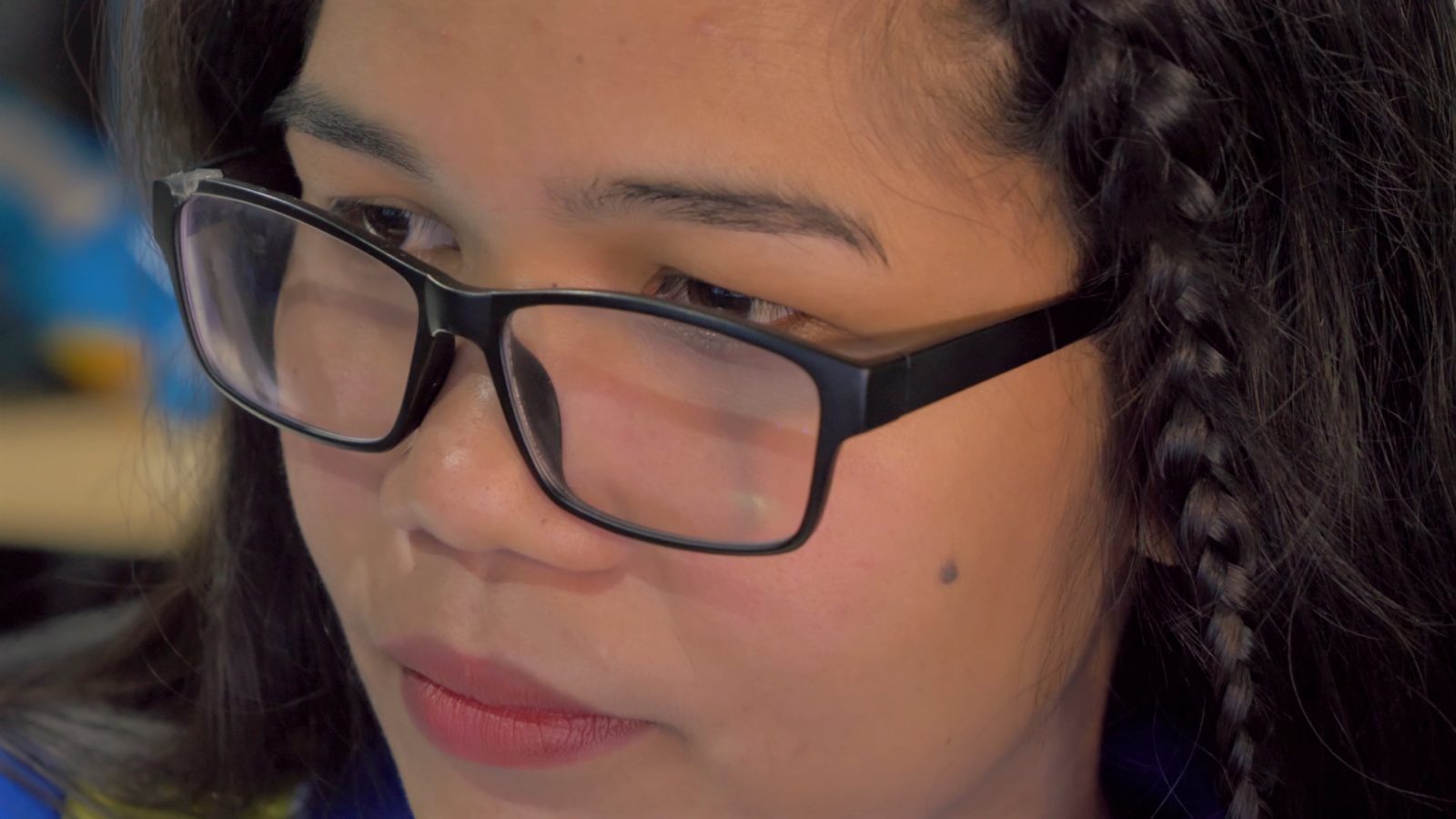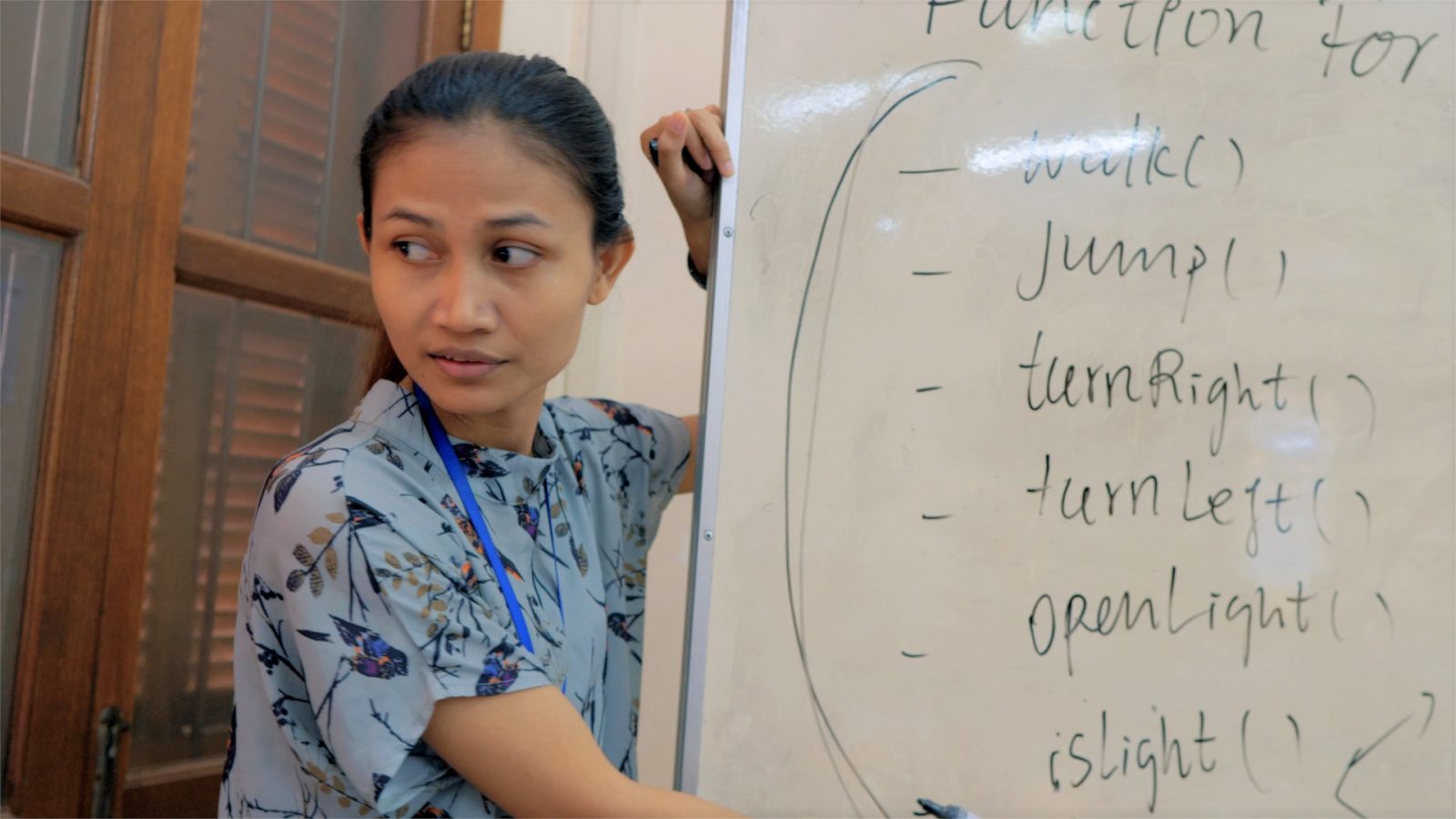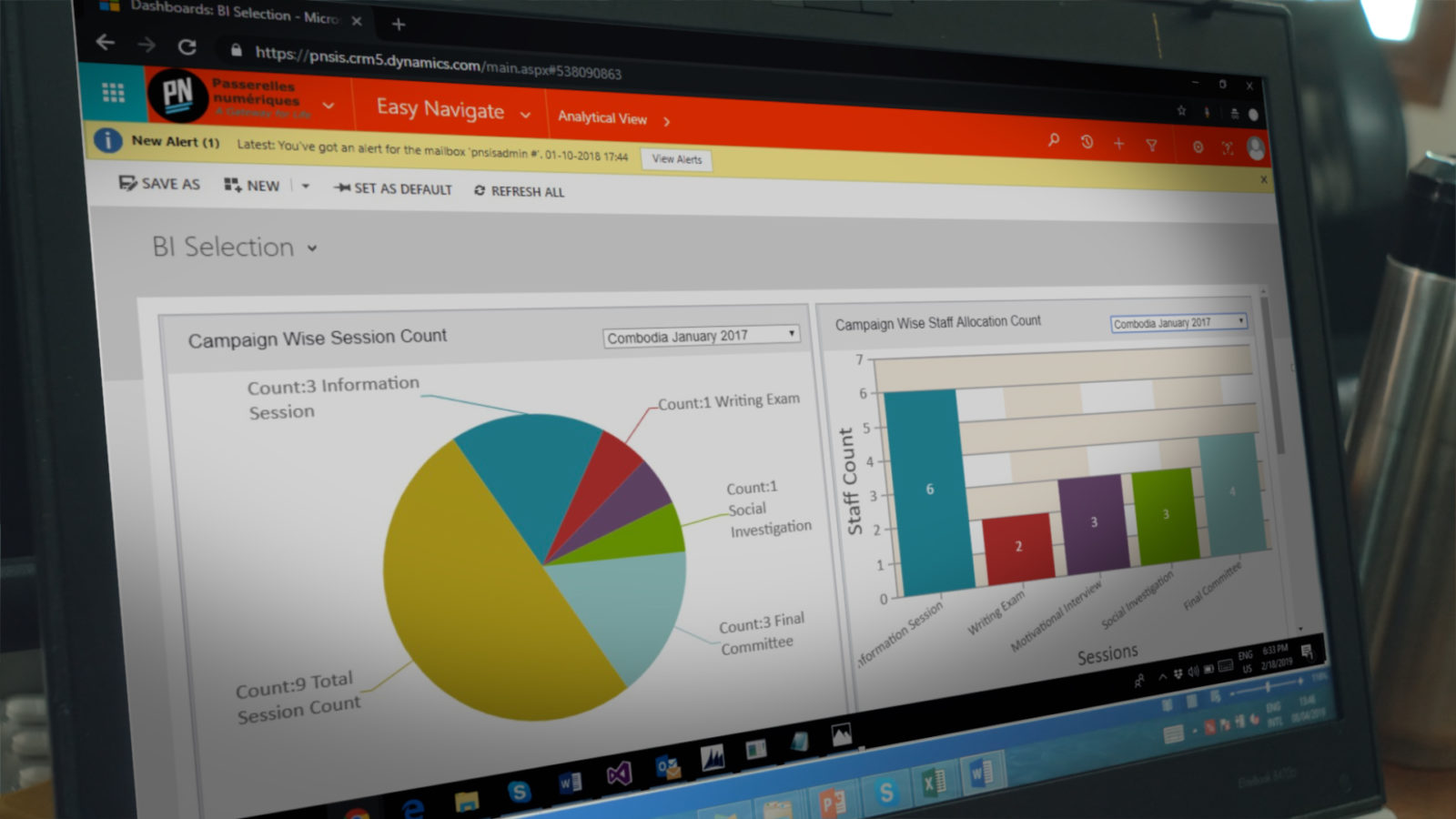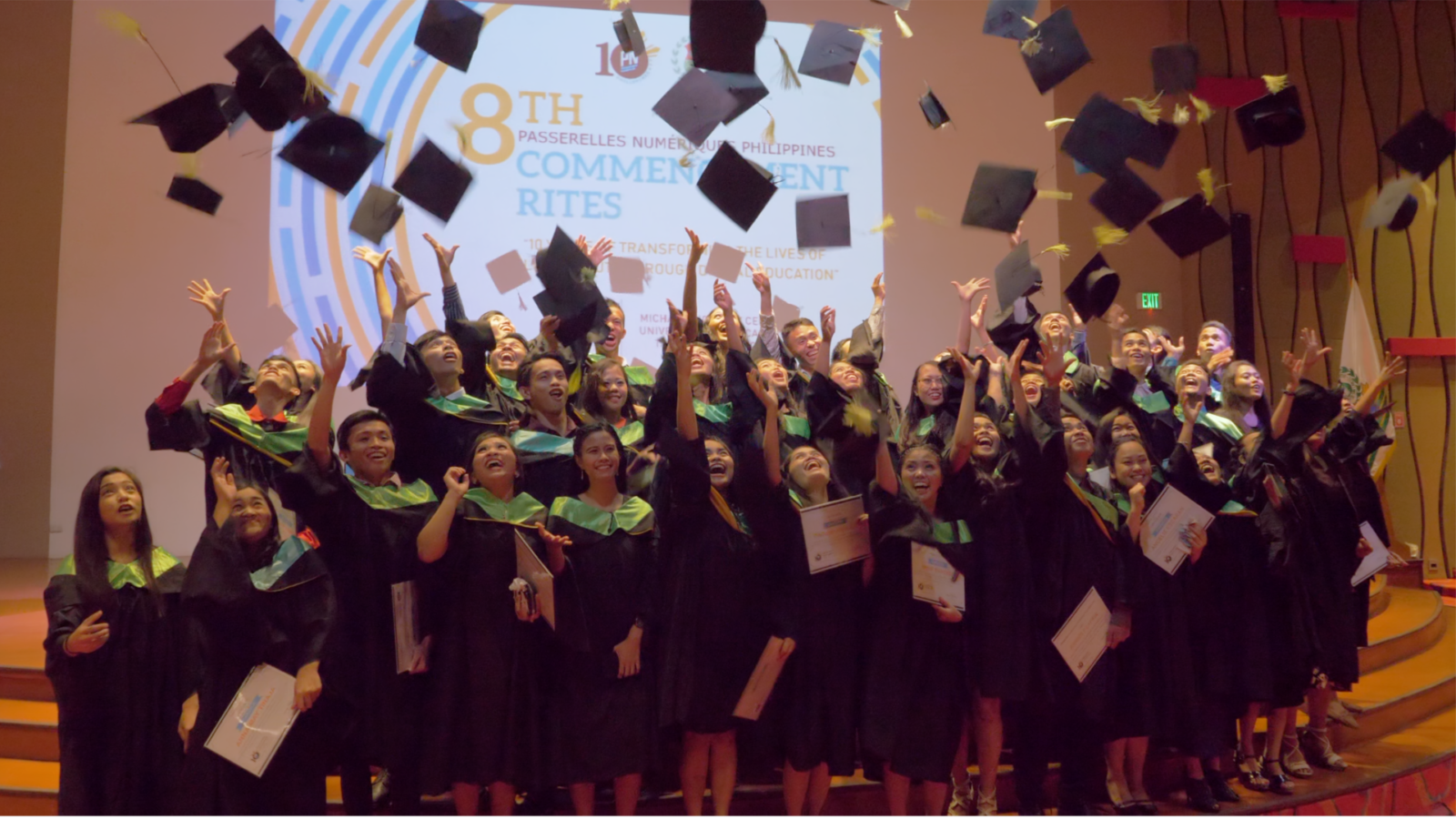
From the dumpsite to the website: Connecting underserved youth to in-demand jobs in Southeast Asia
One woman’s journey to determine her own career pathway with help of training shows how acquiring new skills means it’s possible for everyone to be part of the future of work.
When Joan Villariaza was a child, both her parents had low income jobs at the local dumpsite sorting the trash. They would bring back discarded computer keyboards and mice for her to play with as substitutes for the toys they couldn’t afford. Looking back now, Joan reflects that by chance or by design, they were preparing her for the digital economy.
She quickly developed a curiosity in computers that stayed with her into her teens. She would hear people say that ‘IT was booming’, however at high school, the computer room was ill equipped and inaccessible. As Joan herself starkly puts it; ‘I felt left behind.’
When at age 17, Joan had the chance to apply for a place at Passerelles numériques in Cebu, Philippines, she jumped at the chance and passed their rigorous selection process. She soon got her hands on her first fully functional computer and in that moment her future was set.
Joan was a perfect match for education nonprofit Passerelles numériques, who build an employment pathway for underserved youth to access the right skills to fill today’s jobs and pursue tomorrow’s opportunities. ![]()
![]()
![]()
With fully residential training centers in Vietnam, Cambodia and the Philippines, their education model eschews the quick fix short course format of so many other vocational training centers, for an in-depth two- to three-year curriculum that builds academic excellence and a learning mindset.

Passerelles numériques’ in-depth curriculum puts equal emphasis on learning digital skills, computational thinking and computer literacy as it does on “life skills” like problem-solving, teamwork, negotiation, collaboration and entrepreneurship. This blend of technical and soft skills isn’t a secret formula but instead a tried and tested model that prepares people for the jobs of the future. In fact, by 2022, 58% of in-demand job roles in an AI economy would require interpersonal, creative or decision-making skills (source: World Economic Forum, The Future of Jobs Report 2018).
Forging partnerships with local colleges and universities, and including Microsoft role-based certifications, underpins the quality of their curriculum and ensures academic standards are kept high. They’ve also recently embraced cloud technology by designing a student management system built on Microsoft Dynamics 365, connecting all three centers. Like their work itself, the system takes a 360º view of student progress from dormitory arrangements to exam timetables, from coursework results to student counselling records as well as keeping tabs on their growing alumni network.

Skills are just a means to an end. With their own curriculum constantly being updated to match in-demand skillsets, Passerelles numériques know that at the other end of the equation are employers who need to change their outlook too. Shifting from qualification-based to skills-based hiring will empower everyone to access new economic opportunities.
To foster this new employer mindset, the nonprofit leverages their regional presence by engaging a growing employer network, including Microsoft’s business partners looking for talents in cloud computing, data analytics or cybersecurity. Employers have quickly learnt that they benefit hugely from a steady flow of highly skilled future-ready graduates. In 2018, 45% of all Passerelles numériques’ student internships were converted to full time employment. On average, 97% of students find employment three months upon graduation.

When Joan graduated from Passerelles numériques in 2013, she felt ‘completely transformed as a woman and as a person ready to start a career and join the world of work’. For her it hasn’t mattered that her parents were poor and that she hasn’t got the mainstream qualifications that so many young Filipinos have. Her strengths are her self-confidence, her digital abilities and her 21st century skillset. She’s found a good fit with an Australian sports image marketing company where she’s a website developer building in-house facial recognition apps that give a competitive edge to their products. She feels valued and recognized, her contagious enthusiasm for the logic of code, and the high speed she writes it at, spreading to her co-workers.
Additionally, she has a 10-year career plan with personal milestones that include setting up her own IT company and continuing her learning journey with additional on-the-job and self-funded training to ensure her skills stay relevant and fresh. Keeping her LinkedIn profile up to date is one way she stays connected to the job market – she’s not a woman who is ever going to stand still.
Now with over 2,000 alumni, Passerelles numériques can confidently claim that their education model is shaping individuals who not only find success in their careers but who give back to their communities by enabling better socio-economic conditions for their families. On average, each Passerelles numériques alumnus gives over 30% of their salary back to their family. Joan is no exception. As she says; ‘The nature of work is changing and I realize that with the right mindset, the right employers to engage with, it’s possible to take a different path, a different course, a different journey.’













